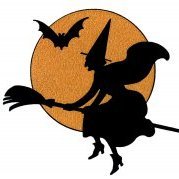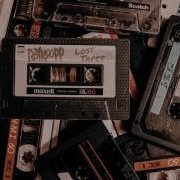-
Posts
1330 -
Joined
-
Last visited
Trutharchivist's Achievements
699
Reputation
Single Status Update
See all updates by Trutharchivist
-
So, perhaps I'll go a bit early this time. I even have a reason for that, on which I'll elaborate inside.
So, welcome to another installment in my Jewish holidays status update series! Ad we're back with the fasts - actually, with the last (or first) of the four fast days for the destruction of the Temple. There is still one more fast day I might mention, but it's another story entirely. So, we're talking about 'Asarah B'Tevet, or the 10th of Tevet - which occurs this Friday. Unlike the 17th of Tamuz and the 9th of Av, this fast isn't known to have multiple events in it - but unlike the fast of Gedaliah, there actually are events that are said to have occured in close times, which gave us two additional, optional fasts - at the 8th and 9th of Tevet. This is why I decided to post this now - though I should mention that I don't think I know anyone who actually fasts during those days.
But let's start with the 10th of Tevet itself. What historical event happened at this day that we fast at it? Well, that's where our chronology gets flipped, because the event is actually the start of the Babylonian siege on Jerusalem, which (naturally) occured before breaching the walls in he 17th of Tamuz, the first fast we've mentioned. It's not very hard to digest, really - this is more or less the first time we've breached the chronology, and unless you're trying to compare multiple cycles inside the year (the three Pilgrimage holidays, the High Holy Days, the Fast Days and the Rabananic [from the Sages] holidays) it's... well, it's going to happen one more time, but c'mon. It's just twice, and it would've taken me three years if I would've tried to stay completely loyal to the chronology - at the very least, possibly more. Anyway, going back to the topic, not everything happened in one year. It's normal, especially in warfare, especially during that era. So yes, the siege started at the 10th of Tevet, lasted for about three years, and ended between 9th-17th of Tamuz, with around three weeks-a month of pillaging the city.
This is all well and good, but... hmm, not sure if anyone wonders about the "why" that much. I mean, maybe you do, but... it's an important event in the downfall of the Kingdom of Judea. It's the beginning of the end for Jerusalem - the start of a downward spiral that led to the 1st Temple's destruction and to the exile.
But what actually happened? Well, prepare yourselves, folks, because this is going to be a lesson in Biblical history (istory based on the Bible).
It's hard to point out a specific starting point, so here's a brief summary of some stuff: there was the United Kingdom of Israel, headed by David and his son Solomon after him. Then most of the Israelite tribes - basicalley, everyone except for Judah, Benjamine, and some of Levi - decided they didn't like the next king in line (Reḥab'am), so they crowned someone else called Yerov'am (transliterations done by me and are, as per usual, imperfect). That split the kingdom between Yisrael and Yehudah. fast forward a couple of hundreds of years and the Kingdom of Yisrael is on it's back leg, suffering from a big decline. Sennacherib, king of Assyria, felt like expanding his empire, so he came over, destroyed Yisrael and exiled its people, leaving mostly foreigners in their place. At the same time, he also went south to Yehudah, fighting against king Ḥezekiah. He destoryed most of his cities, putting a siege around Jerusalem and trapping Ḥezekiah as a bird in a cage.... and then leaving, according to the Bible - due to a miraculous plague hitting his troops and killing a bunch of them in one night. Ḥezekiah still has a lot to rebuild.
Now, I could talk more about Ḥezekiah, but it's less related. What is related to our matter is that he was one of the righteous kings, and that after the Assyrian withdrawal from his kingdom he accepted messengers from the King of Babylon and showed them all he had, including treasures from the Temple, which Isaiah, the prophet of his time, informed him G-d didn't approve of. So much so, in fact, that he promised him his descendants will be eunuchs in the King of Babylon's palace - though this and the complete destruction of Yehudah won't be during his days.
Well, Ḥezekiah's son is one of the evil kings, as is his son after him. the latter one, though, gets assassinated after two years on the throne. The people - or perhaps the nobels, it's not completely clear - prefer leaving David's line on the throne, so they kill the assassins and appoint 8-years-old Yoshiah to be king.
Now, it wasn't unheard of; just a couple of generations ago Yoash was appointed king at a similar age. Solomon did say "woe to you, the land whose king is a boy!" )Ecclesiastes 10, 16), but apparently no one listened. But what's interesting is what happened when Yoshiah grew older, at the ripe age of 26. it was the 18th year of his reign, and he sent his scribe Shafan to check out that everything was fine with the maintenance of the Temple funds and stuff. Incidentally, the current high priest - Ḥilkiah - just found a fascinating discovery - the Torah scroll. But Arch I do not hear you say but kind of hipe you're wondering, what's so interesting about a Torah scroll? It being their scripture means they know its content, isn't that so? Well, no, I'm afraid. The thing is, the evil kings Mennasheh and Amon reigned for 57 years combined. It's kind of a long time, during which the Torah may have fallen out of use a little.
So, Ḥilkiah reads to Shafan from the Torah scroll, and the latter decides to go show it to the king. The king hears what the Torah says and tears his clothes in... anguish? I guess? don't know the proper descriptive. Anyway, it appears he realized they didn't keep the Torah very well and that the Torah states they're going to be punished for it. So he sends a few of his people to Ḥuldah, the prophet. Ḥuldah literally means "rat" in Hebrew, and she's one of the rare female prophets in Judaism. Anyway, Ḥuldah doesn't have many nice things to say to the king's messengers. Essentailly, she says: "you're right, your kingdom is due to fall in the near future, but due to you repenting you get a thumbs up and not to see your kingdom's fall". So... yeah.
I don't know why, but telling this story always sounds better in my head. So I guess I'll make it short, maybe. Yoshiah starts a religious reform - and a very thourough one, at that. He removes all altars and temples except for the one in Jerusalem; he kind of takes over the lands that once belonged to the Kingdom of Yisrael and basically destroys their false idols too, fulfilling by that a prophecy as old as the Kingdom of Yisrael itself; he makes a huge Pesach celebration, one of the only... five, I think? directly mentioned in the Bible. But then, Pharaoh Necho decided he wanted to go north to Mesopotamia, to kind of help one of the sides in a dispute between the falling empire of Assyria and the rising empire of Babylon. Now, while it's true that one can't go from Egypt to Mesopotamia (an area around modern-day Iraq) without passig through the modern day area of Israel, technically Yoshiah's land was only the southern Kingdom of Yehudah, which didn't really stand in the way all that much. But as I said, Yoshiah took over the lands of the northern kingdom as well, and he didn't want an army headed to war passing through any part of his land - according to the Sages, due to an interpretation of the blessing verses in the Torah.
So, Pharaoh basically told Yoshiah: "what dispute do you have with me? I'm just passing through, your little kingdom doesn't really interests me." Yoshiah didn't listen to him, though, and made his stand in Meggido. Does this name ring any bell for you? Oh, it sounds a tiny bit similar to Armageddon? Well, surprise surprise, it's actually related! Armageddon is just a bad transliteration of the phrase "Har Meggido", lit. The Mountain of Meggido. Apparently the origin of the idea that this will be the site of the end-of-days battle is in the New Testament, so I have no obligation to talk about it. It might be related to a verse in Zachariah, though - in the last chapter there, he talks about the battle of the end of days, and says that the lamentations in Judah and Jerusalem in that day will be as plentiful as some lamentations on Hadadrimon in the valley of Meggidon. The Aramaic translation of the phrase separates it to two different deaths - one of King Ahab of Yisrael, who (is said to have) died by the hand of Hadad - hence Hadadrimon, and the other of King Yoshiah (usually translitrated Josiah) in Meggido. So, umm, there you have the connection.
Anyway, yeah. Yoshiah died battling someone he didn't even have to fight. He was mourned by many people - among them Jeremiah, the last prophet og the 1st Temple. It is said that Lamentations was written by Jeremiah, and that the fourth chapter there was written about Yoshiah - who is nicknamed at one point "The breath of our nostrils, the anointed of the LORD." (Lamentaions 4, 20 NIV), or alternatively - the Messiah. But hey, that's completely normal - his whole line is made of Messiahs, technically. Still, he's one of at least three people that may be considered Messiahs in Judaism (not going over them right now), and one of three (different) people who are the only ones called "the LORD's anointed one" in the Hebrew Bible - those being King Shaul, Kind David, and him. He's also the last king who's the common father of all the kings after him. Because three of his sons (and one grandson) were kings.
Well, I did not cut it short, so I'll try better with the next few kings: Yehoaḥaz, who was mostly forgotten due to ruling only for three months before Pharaoh decided he needed replacing; Yehoyakim, the puppet king of Pharaoh, who was conquered by Babylon but rebelled against them; his son, Yechoniah, who ruled for three months before surrendering to Nebuchadnzzar and being exiled, along with the elite of the kingdom; and finally, Zedekiah. Well, his original name was Mataniah, but if Nebuchadnezzar decided someone's name is no longer their name - it's no longer their name. Zedekiah is rather stupid, since he decides to rebel against Babylon again.
One more thing you need to know is that ever since Yoshiah died Jeremiah only had one thing to say, which is basically "surrender to Babylon or G-d will send you to exile", aand... there we go. All the pieces are in their proper places. So after Zedekiah makes his mov, Nebuchadnezzar makes his - moving his forces to put Jerusalem under siege.
Once the Babylonian armies, headed by Nebuzaradan (Nebuchanezzar's Master of Butchery), arrive at Jerusalem, among the people exiled with King Yechoniah there's a Cohen, a priest, named Ezekiel. And he is told to write down this day, as it'll go down in history as the first day of the siege. And that's it, that's why we fast during the 10th of Tevet. The siege itself was pretty bad all around, but I'm honestly too tired to elaborate on that right now.
But Arch, you promised explaining about two more fast days, didn't you?
I did, didn't I. Oh dear. Well, the likelihood of anyone reading this far is low, so I can just say whatever, I guess. But yeah, the two other days: 8th and 9th of Tevet. What's their story? Both could benefit from more limelight, but I'm currently really tired, so I'll sum it up as the day the Torah was translated to Greek (ever heard of the Septuagint?) and the day Ezra the Scribe died, respectively. Ezra has, in many ways, reshaped the way Judaism looked like for the next two hundred years - and thus, he is worthy of elaboration, as is the reason the Torah being translated is a cause for mourning. Sadly, this isn't going to happen right now - comment if you actually want this to happen.
Anyway, that's it for the - well, for the ancient part of the history. Just going over the fast practices - no eating or drinking from sunrise to sunset, a couple of additions to the daily prayers... and that's more or less it, I think. Oh, except for the day of General Kaddish thing.
You know what, I'm too tired to use the ask-and-reply method right now too. so [insert baffled noises here], which should be you, and answer - oh, yes. that thing. Basically: there's a prayer in Aramaic called a Kaddish, which JEws say many times during a daily prayer. One type of Kaddish is the Mourner Kaddish, which is said by mourners during the first year after their loved one passed away, and at the dte of their death every year afterwards. But what if you don't know when your loved one died? This is an issue that arose mostly after the Holocaust. And as an answer, this day was made: the day for saying Kaddish for those whose date of death isn't known. In that way, it serves as the religious Shoah (Holocaust) Rememberance Day, due to issues with the official Israeli one and the international one. So, there you have it, I guess.
So, in this post I've talked about the events leading to the Babylonian siege of Jerusalem, the fast of the 10th of Tevet, the other two fasts around it and the day of General Kaddish. Yeah, it's more of a summary than a TL;DR, I honestly don't have the willpower to write one right now.
Thank you for reading, and have a good day!
Yours truly,
Trutharchivist the Hebrew


.thumb.png.5afeb53c24c681e1d35e3f8ba62a6319.png)










